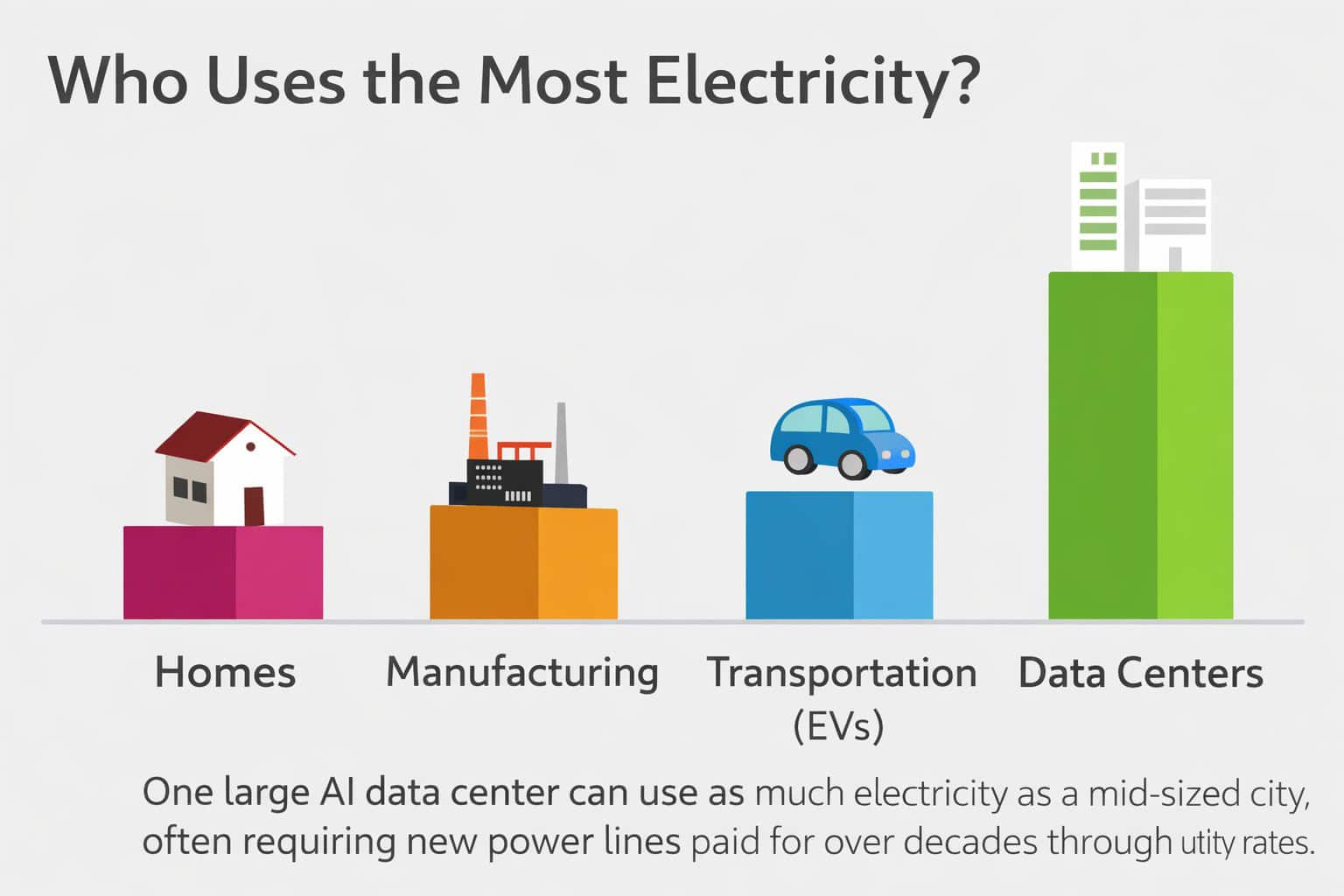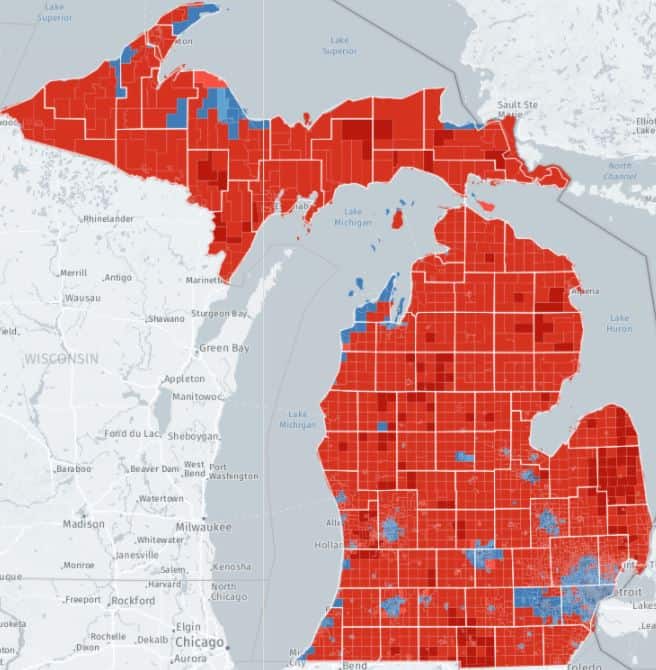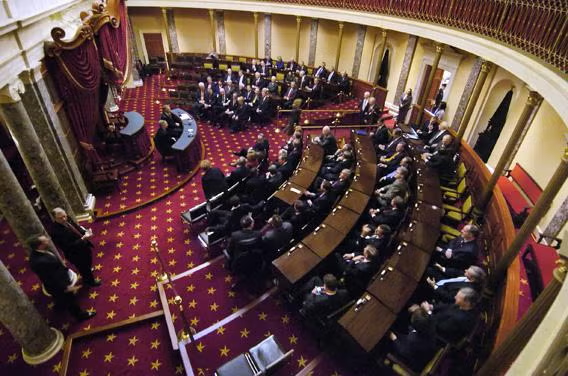LANSING — Governor Gretchen Whitmer announced two Michigan projects have received funding from the U.S. Environmental Protection Agency’s (EPA) Clean Ports Program.
The Michigan Department of Environment, Great Lakes and Energy (EGLE) has received $3 million in funding to launch the MI Clean Ports Program and the Wayne County/Detroit Port Authority has received $25 million, including $1 million in state matching funds, to decarbonize port operations in Southwest Detroit. This investment from the Biden-Harris administration’s Inflation Reduction Act (IRA) will grow Michigan’s maritime economy, reduce air pollution from Michigan’s port operations, and advance the goals of the MI Healthy Climate Plan.

“Today’s investment to build up our ports and make them more efficient will support thousands of good-paying jobs, strengthen our supply chain, and drive millions of dollars in commerce,” said Gov. Whitmer. “This funding, delivered from the Biden-Harris administration’s Inflation Reduction Act, will allow us to continue moving important goods like stone, cement, and crops while protecting our environment, safeguarding public health, protecting jobs, and putting us one step closer towards meeting our climate and clean energy goals. Let’s keep working together to grow our economy.”
Launching the MI Clean Ports Program
The MI Clean Ports Program will provide grants and technical assistance, helping ports with emissions inventories, planning efforts, community engagement, and more. The program will support Michigan’s ports and port communities’ efforts to transition to zero emissions operations and reduce local air pollution, creating cleaner, healthier air for residents. EGLE’s Office of the Great Lakes will administer the program with support from other offices and divisions within EGLE, the Michigan Department of Transportation, and Michigan Economic Development Corporation’s Office of Future Mobility and Electrification.
“The MI Clean Ports Program will help Michigan’s ports and port communities become more sustainable,” said EGLE Director Phil Roos. “Michigan’s unmatched water resources literally define our state, giving all Michiganders a unique responsibility to steward them. Today’s investment from the Biden-Harris administration will protect these resources, reduce local air pollution, and implement local climate solutions while growing Michigan’s thriving maritime economy.
Michigan’s ports are a critical part of the state’s transportation infrastructure and supply chain. Michigan is home to 33 active cargo ports that ship or receive 51.7 million tons of cargo valued at $4.1 billion. The MI Clean Ports Program builds on the state’s work to transition to greener, more sustainable ports. These include but are not limited to the:
- Launch of the Fresh Coast Maritime Challenge, a first-of-its-kind grant program to help companies decarbonize and electrify Michigan’s marinas and watercraft.
- Publication of the Small Harbors Tools and Tactics Guidebook, as a part of the Sustainable Small Harbors Initiative, a guide to help waterfront communities in their sustainability efforts.
- Use of state and federal dollars to support:
- The transition of public freight and passenger ferries, including the Beaver Island Ferry and the S.S. Badger, to cleaner, more efficient models.
- The build-out of the Fresh Coast Marine Corridor, the nation’s first freshwater electric boat charging network, in Northern Michigan.
- The deployment of clean power and electrification equipment onshore to support Michigan’s ports and locks, including at the Soo Locks.
The program will be developed in coordination with the Michigan Maritime Strategy, an effort to support the sustainable development of Michigan’s maritime sector, which includes commercial shipping, ferries, and recreational boating.
“Michigan Department of Transportation (MDOT) officials were pleased to support this grant request and are looking forward to the ways the MI Clean Port Program will help contribute to the resiliency of state’s maritime freight transportation system,” said MDOT Director Bradley C. Wieferich. “The partnerships with EGLE and Michigan’s ports is critical to helping advance the great work of the maritime industry.”
Decarbonizing Port Operations in Southwest Detroit
Clean Haul Michigan: Decarbonizing Port Operations in Southwest Detroit, a program in partnership with the Wayne County/Detroit Port Authority, City of Detroit, and wet and dry port partners, received $25.1 million from the Clean Ports Program. The initiative also received a $1 million match grant from the Make it in Michigan Competitiveness Fund. The awards will support the purchase of battery electric mobile equipment, vehicles, vessels, charging equipment, related infrastructure, and solar arrays to initiate the transition to a zero-emission future for the Port of Detroit and the nearby Livernois Intermodal. In addition, the initiative will support local workforce development, especially for electrical workers, through a pre-apprentice program in collaboration with the local building trades association.
The Port of Detroit and Livernois Intermodal sit less than two miles apart and are integral to the industrial production of the Midwest and to trade between the US and Canada, with over $44 billion in exports crossing between Detroit and Canada annually, and over $600 million in daily trade. Of the 10,000 trucks crossing the border daily approximately 40% end their trips in Southeast Michigan and 60% begin or end in Wayne County. It is also estimated that nearly 2,000 truck trips per day are generated by drayage, rail, and port facilities supported by this project.
“The Port of Detroit, a key economic engine in my district, received almost $25 million from the EPA to modernize port equipment and infrastructure,” said Congressman Shri Thanedar, “By bringing zero-emission equipment to Detroit, the Biden-Harris administration has made our port, the largest in Michigan, competitive in the global shipping market for years to come, and recommitted to our nation’s battle against climate change. As the top Democrat of the Transportation and Maritime Subcommittee, I am devoted to modernizing our transportation system to help all Americans, and federal policies like these are critical steps to making these goals a reality.”
This project will support the first implementation activity in the recently completed Port of Detroit Decarbonization and Air Quality Improvement Plan, which seeks improve air quality, reduce negative health impacts for the community, and reach net zero carbon emissions by 2040.
Mobilizing to Secure Federal Dollars Since the passage of the IRA, as well as the federal Bipartisan Infrastructure Law (BIL) and CHIPS and Science Act, Michigan has aggressively mobilized to secure federal resources. According to Climate Power, Michigan is No. 1 in the nation for IRA projects, which have resulted in more than $26 billion in new investments and 21,000 jobs across the state. This funding, in tandem with Governor Whitmer’s clean energy legislative package, “Make it in Michigan” Competitiveness Fund, and bipartisan economic development tools, is growing the middle class; creating good-paying, in-demand manufacturing jobs; bringing supply chains home; and lowering energy costs for families.
To date, the Competitiveness Fund has secured over $961 million in federal funds by investing nearly $186 million in state funds, a return on investment of more than 5:1.
“The maritime industry is responsible for 3% of global emissions. To meet our MI Healthy Climate Plan goals and build a more sustainable future, we must invest resources into converting fossil fuels to zero-emission power sources,” said Zachary Kolodin, chief infrastructure officer of Michigan and director of the Michigan Infrastructure Office. “Today’s investments, made possible by the Biden-Harris administration and the Make it in Michigan Competitiveness fund, will help us do just that, driving job creation and economic growth in the process.”
About the Michigan Infrastructure Office
The Michigan Infrastructure Office is responsible for organizing and executing Governor Whitmer’s vision for infrastructure, coordinating across state government, marshaling resources, and partnering with local officials, federal partners, and outside stakeholders to ensure resources sent to Michigan through BIL, also known as the Infrastructure Investment and Jobs Act (IIJA), are used efficiently and effectively.
For more information about the Michigan Infrastructure Office, please visit their website.






